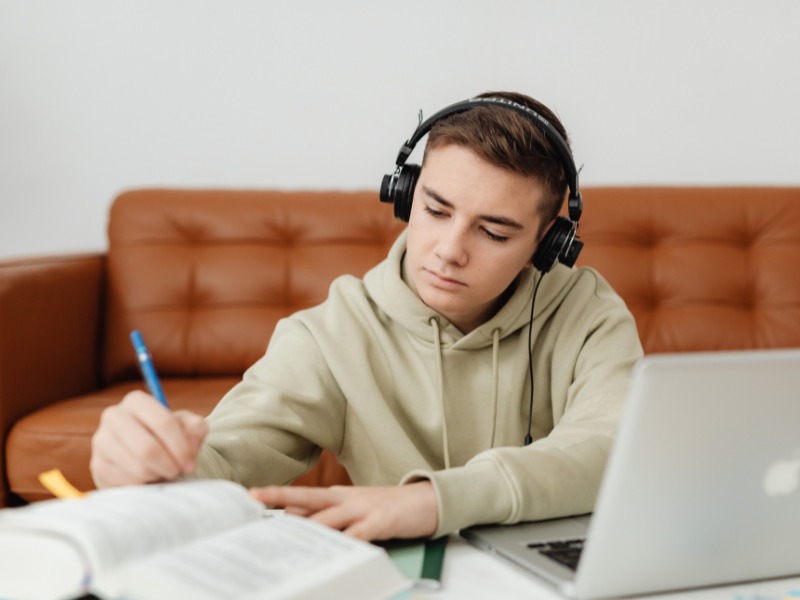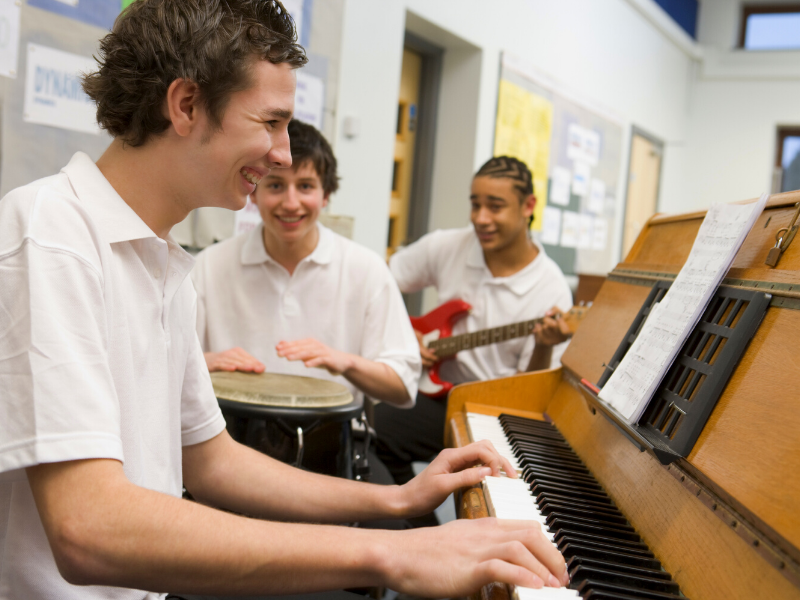
Research Updates

Here at Bigger Better Brains we believe that through educating yourself, you can then educate and affect positive change in your community.
With all of the research in the field of neuromusical science, our BBB Research section serves as a content hub for you. We regularly share findings and break down the latest research to educate and inspire discussion. We hope you enjoy this page on our website and share BBB news with your colleagues, parents and students.
Support Student Curiosity Anytime, Anywhere.
Founder of Bigger Better Brains, Dr Anita Collins, receives hundreds of emails from students around the world asking questions about neuromusical research. So she decided to record a short video about the most asked questions she has received.
When Music Makes the Grades
A 2020 study from Brazil found that kids aged 8–12 who joined twice-weekly group music sessions outperformed their peers in reading, writing, and math. They also showed better attention and memory. Led by Projeto Guri, the program proves what many music educators feel: consistent, inclusive music-making fuels broader learning.
Music Isn’t a Break from Learning—It’s the Launchpad
Music isn’t just an artform—it’s a brain booster. This post explores how music primes the brain for learning by enhancing focus, memory, and emotional connection. For music teachers, it’s a reminder that every lesson is more than musical—it’s neurological.
Top 7 questions asked by students
Founder of Bigger Better Brains, Dr Anita Collins, receives hundreds of emails from students around the world asking questions about neuromusical research. So she decided to record a short video about the most asked questions she has received.
Music learning is the cheapest diagnostic tool you can find!
Music learning is the most effective way, both in terms of time and impact, to prime the brain for language learning.
How Music Primes the Brain for Learning
This article delves into the transformative impact of music education, particularly for underserved students, and a strategic tool for addressing academic challenges, boosting attendance, language skills, and social integration.
Music is the Jackpot!
This video contains excerpts from an ARTSpeaks event held on November 8, 2021. In this video, neurobiologist Nina Kraus explores the impact that music learning has on young students in the areas of reading skills, sound processing, language abilities, and more.
Would you want to know your musical potential?
Here is one hell of a tricky question – if your musical potential, meaning your likelihood of being successful at learning music (whatever that really means) could be measured, would you want to know?
Challenge your brain with different music!
This study looks at how our brains engaged with familiar and unfamiliar music. Turns out our brains sustains engagement with music that is unfamiliar.
Why does white matter matter?
You have probably heard of grey matter but have you heard of white matter? White matter in our brain is tissue composed of nerve fibres.
Starting music at 6 years old supercharges the brain
Here is one of those research sentences that are so useful when we are explaining how music learning impacts on every child’s development.
Active Music Learning Infographic
Does all music learning enhance brain development? This is an important question as we examine the research around the impact of music learning on the brain.





















